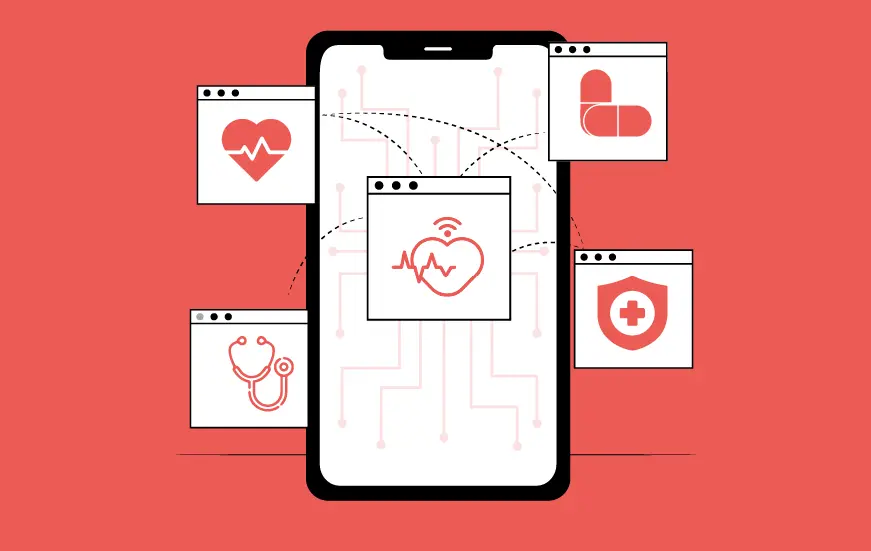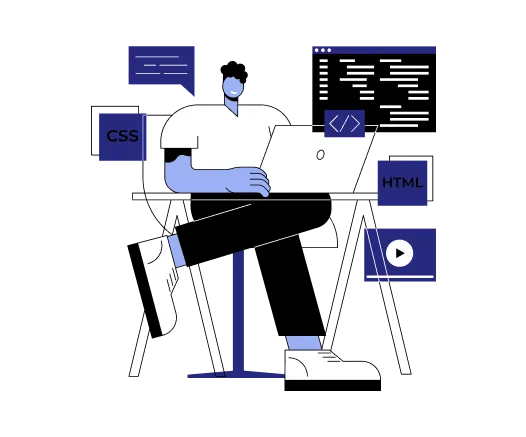- Understanding the Importance of CRM Software in Business
- Types of CRM Software
- 7 Essential Steps to Hire CRM Software Developers
- Define Your CRM Project Requirements
- Choose the Right Hiring Model
- Research and Shortlist Candidates
- Evaluate Technical Expertise
- Conduct Interviews and Tests
- Finalize the Agreement
- Onboard and Begin Development
- How Much Does It Cost to Hire CRM Software Developers
- Developer’s Experience Level
- Developer’s Geographical Location
- Project Complexity
- Engagement Models
- Challenges in Hiring CRM Software Developers and How to Overcome Them
- Finding Developers Who Really Understand Your Industry
- Ensuring Effective Communication
- Balancing Cost and Quality
- Red Flags: When to Walk Away From a Developer
- After You Hire: What Success Looks Like
- Hire Top CRM Software Developers from Appinventiv
- FAQs
Key Takeaways
- Custom development beats generic when workflows are unique. Hire dedicated CRM software developers who understand your industry, data, and integrations.
- Walk on the right hiring path: define scope → choose hiring model → vet portfolio/stack → run a test → lock SLAs, NDA, and IP.
- The cost to hire top CRM developers ranges between $30,000 and $300,000 per project.
We all know how much the right CRM system can transform your business. But what we don’t know is: many companies don’t just need a CRM; they need custom CRM software that actually fits their unique workflow.
According to the latest research, businesses using CRM with generative AI are 83% more likely to exceed their sales goals, and 65% of sales reps using mobile CRM reach their quotas compared to just 22% of non-mobile users.
The problem? Building custom CRM software that can scale with changing times and needs requires specific expertise. It needs skilled CRM software developers who understand not just code, but your industry, your customer workflows, and how to integrate everything. That’s where the hiring challenge begins.
It requires several considerations before you make the right choice. These considerations include but are not limited to: How much does it cost to hire CRM developers? What questions should be asked in the interview when onboarding the right talent, and so on?
Well, worry not; this blog will answer all your queries and help you reach the right door.
Give your team the tools to do the same: intelligent automation, mobile access, and deeper insights.
Understanding the Importance of CRM Software in Business
The importance of CRM in business is hidden from none. According to a 2024 survey by Freshworks, 73% of businesses counted on CRM software in 2024 and 81% of businesses plan to increase their CRM budgets in the next year.
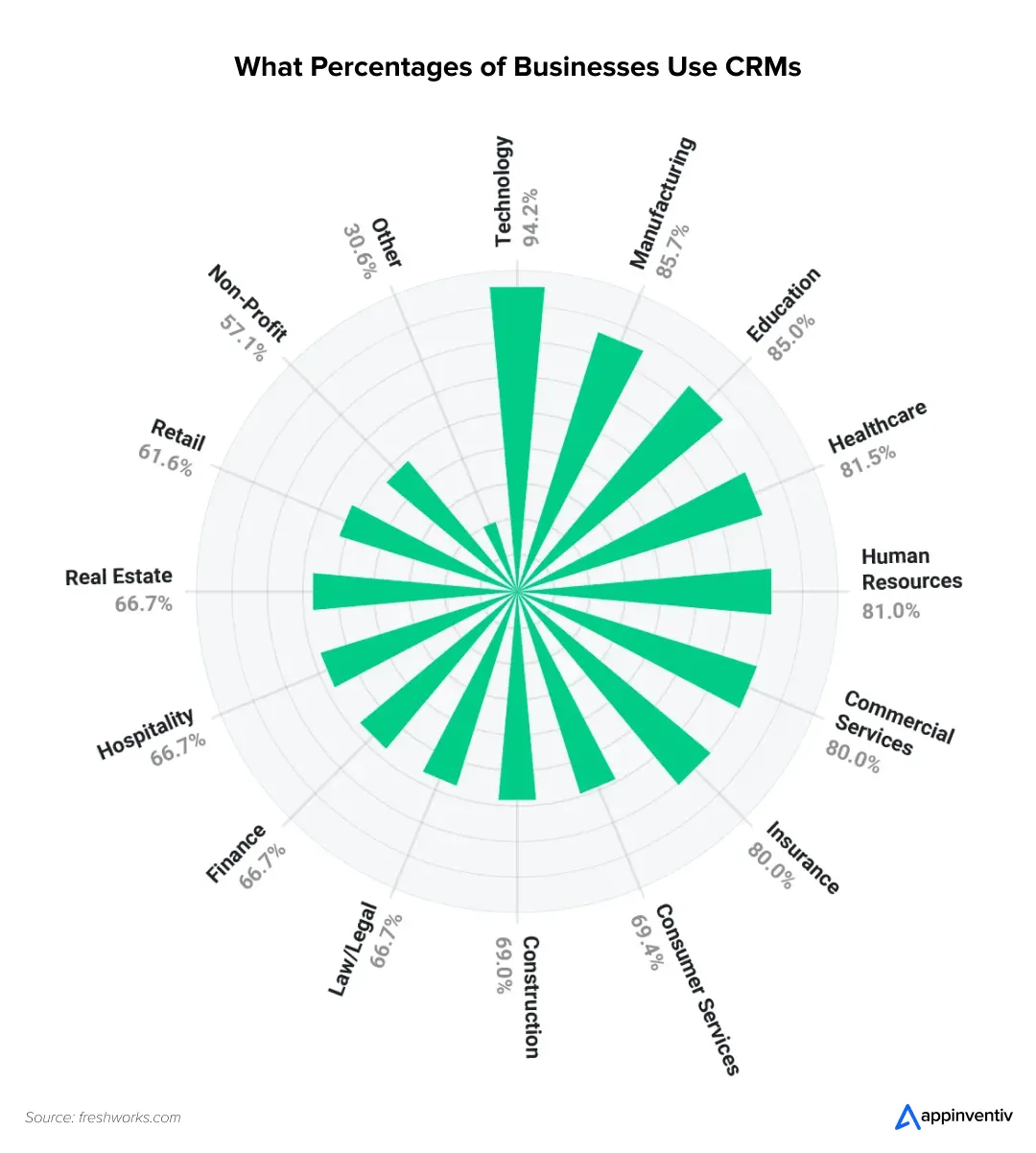
But what makes CRM software so powerful that its applications in business across industries are prevailing with each passing year? Well, CRMs are powerful systems that help centralize customer data, make informed decisions, personalize customer interactions, and optimize workflows. And as we know, improving customer experience and making data backed decisions for day to day tasks are two core functional areas for any business; the dominance of CRMs is evident.
Results of CRM Implementation:
- 97% of businesses that used CRMs in the past year have stated they either met or exceeded their sales goals.
- 86% of businesses that use a CRM are more likely to exceed their sales goals compared to those that don’t.
- 21-30% is the average increase in sales revenue for businesses that have implemented a CRM platform.
Types of CRM Software
Now that we know what makes CRM systems so powerful and what results businesses are witnessing with their implementation, we should also learn about the available types that do the intended tasks. Typically, there are three types of CRM software:
- Operational CRM: Focuses on automating sales, marketing, and service operations to streamline workflows.
- Analytical CRM: Provides actionable insights through data analysis, helping businesses understand customer behavior and trends.
- Collaborative CRM: Enhances communication between departments to ensure consistent customer experiences.
Whatever types of software suit your business needs, you need to hire dedicated CRM software developers to bring your vision to life. Why? Let’s uncover the benefits of hiring dedicated CRM software developers in the section below:
Also Read: Enterprise CRM: Benefits, Features, Platforms & Implementation Process
7 Essential Steps to Hire CRM Software Developers
Hiring dedicated CRM software developers is crucial to building a system that aligns with your business goals. However, finding the right one as per your needs and budget is not an easy feat. But worry not, we are here to ease the path and take you to the door of the best CRM implementation experts who will align with your project needs, business goals and budgets too. Here is a step-by-step process to help you get started:
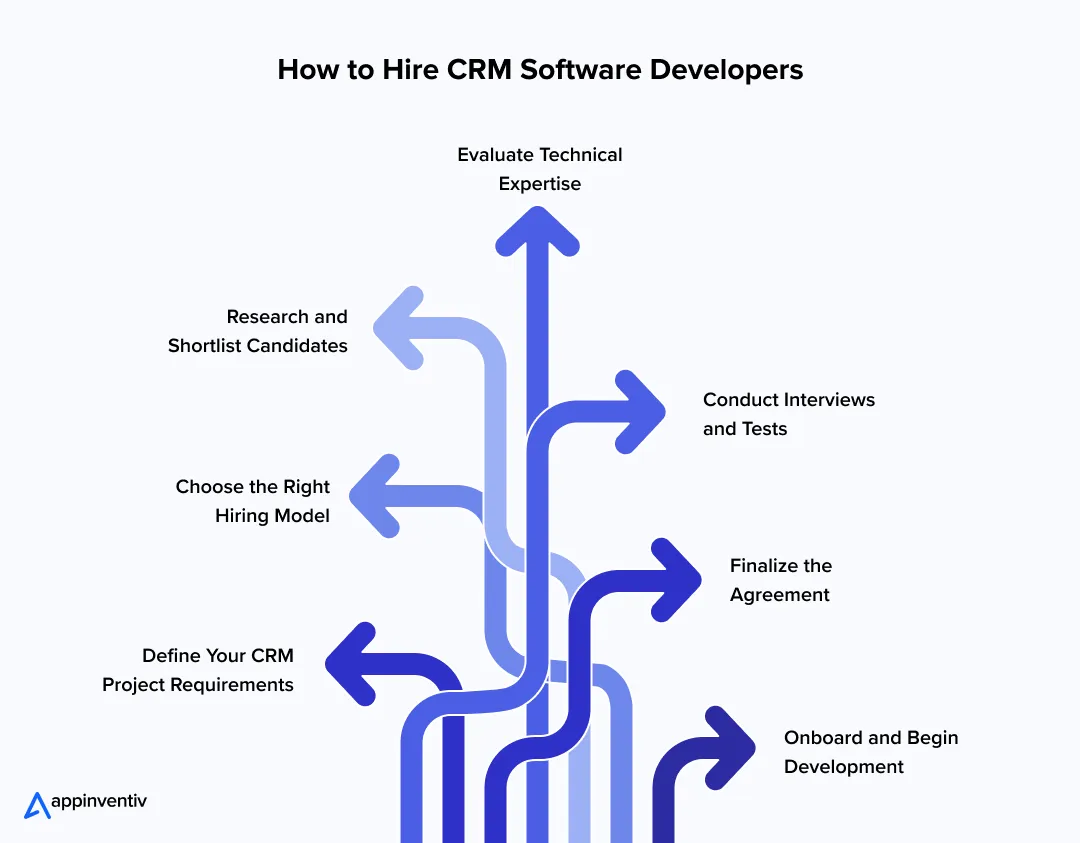
Define Your CRM Project Requirements
The first step to hire CRM developers starts with defining your business needs for custom CRM system development. Identify the features, integrations, and CRM software types required to address your operational goals. Whether it is automation, analytics, or customer data management, a well-defined scope ensures you find the right talent that aligns with your objectives.
Start by asking yourself:
- What’s your core problem? Are you drowning in spreadsheets? Can’t track customer interactions? Missing sales opportunities because data is scattered?
- What features do you actually need? Automation? Advanced analytics? Multi-channel communication? Integration with your ERP or marketing stack?
- What’s your budget and timeline? Can you afford only $40,000 to $100,000 or open for $200,000 – 400,000 investments? Are you okay with the timeline of 4 months or 12 months?
- Scale and performance: Will you have 100 users or 100,000? Does your system need to handle real-time analytics on massive datasets?
Choose the Right Hiring Model
Now, you must decide on a hiring model that best fits your project. When you choose for the best hiring models, you typically have 4 choices:
- A freelance developer
- An in-house team
- A development agency
- A dedicated development team.
Each of these models offers unique benefits, so you must evaluate them against your needs, budget and timeline to ensure you are going ahead with the right approach.
Not sure about the evaluation criteria? Here is a table to help you in the process:
| Aspect | In-House Team | Freelancers | Outsourced CRM Developers | Dedicated Development Team |
|---|---|---|---|---|
| Cost | High costs due to salaries, perks, training, and infrastructure expenses. | Typically lower than in-house or dedicated teams | Cost-effective; no overhead costs like training or workspace. | Moderate; offers scalability to match project size and complexity. |
| Expertise | It may require time to build skills and domain-specific knowledge. | Offers specialized skills, but expertise may vary based on individual experience. | Offers specialized skills and industry experience from the start. | Combines diverse expertise tailored to your specific needs. |
| Development Speed | Development may be slower due to multitasking or limited team size. | Speed can vary based on freelancer availability and workload. | Faster development with a dedicated focus on your project. | Fast-paced with streamlined workflows and dedicated focus. |
| Access to the Latest Tools | May require additional investment in new technologies and tools. | May not always have access to the latest tools. | Equipped with advanced tools without additional costs. | Fully equipped with the latest technologies and resources. |
| Flexibility | Limited flexibility, tied to in-house resources. | Highly flexible with the ability to scale up or down as needed. | High flexibility with access to a global talent pool. | Highly adaptable to evolving project requirements. |
| Project Focus | May divide focus across multiple internal projects. | Can provide dedicated focus but juggle multiple projects. | Fully focused on delivering your CRM solution. | Dedicated to your project with constant collaboration. |
A survey by Deloitte Global Outsourcing reveals that around 80% of companies prefer outsourcing and plan to increase their investment in software development to reduce costs and gain access to specialized expertise.
Research and Shortlist Candidates
This is indeed one of the most important steps to hire CRM software developers. To find the right developer, you need to first ask yourself, “Where can I find a company to develop a custom CRM system for my business?”
There are many credible platforms like GoodFirms, Mobileappdaily, Clutch, etc. where the right talents await you. After conducting thorough research at these platforms and shortlisting some potential candidates, you need to vet them thoroughly:
How to vet them:
- Check their tech stack alignment: Can they work with Salesforce? Zoho? HubSpot? Custom builds? Your stack determines everything.
- Review case studies: Peep into their portfolios to get a glimpse of their past projects similar in complexity and scale to yours. Did they deliver on time? Did they handle integrations well?
- Assess their communication style: How fast do they respond? Do they ask clarifying questions? Can they explain technical concepts without jargon?
Ensure your chosen candidates align with all these criteria.
Evaluate Technical Expertise
Next vital step to hire remote CRM developers is to assess the technical skills. Why? Because basic coding skills will not suffice for your custom CRM development needs. You need CRM implementation experts who carry the core competence in this particular area. So, you must:
- Look for proficiency in custom CRM platform development, implementation, and other CRM services.
- Evaluate their expertise in relevant programming languages (like Java, Python, .NET, or PHP), and database management (like MySQL, PostgreSQL, or MongoDB).
- Evaluate their API integration skills. Can they plug your CRM into your email platform, accounting software, or custom tools?
Their understanding of CRM-specific services and data security compliances like GDPR or HIPAA is indispensable for successful product development.
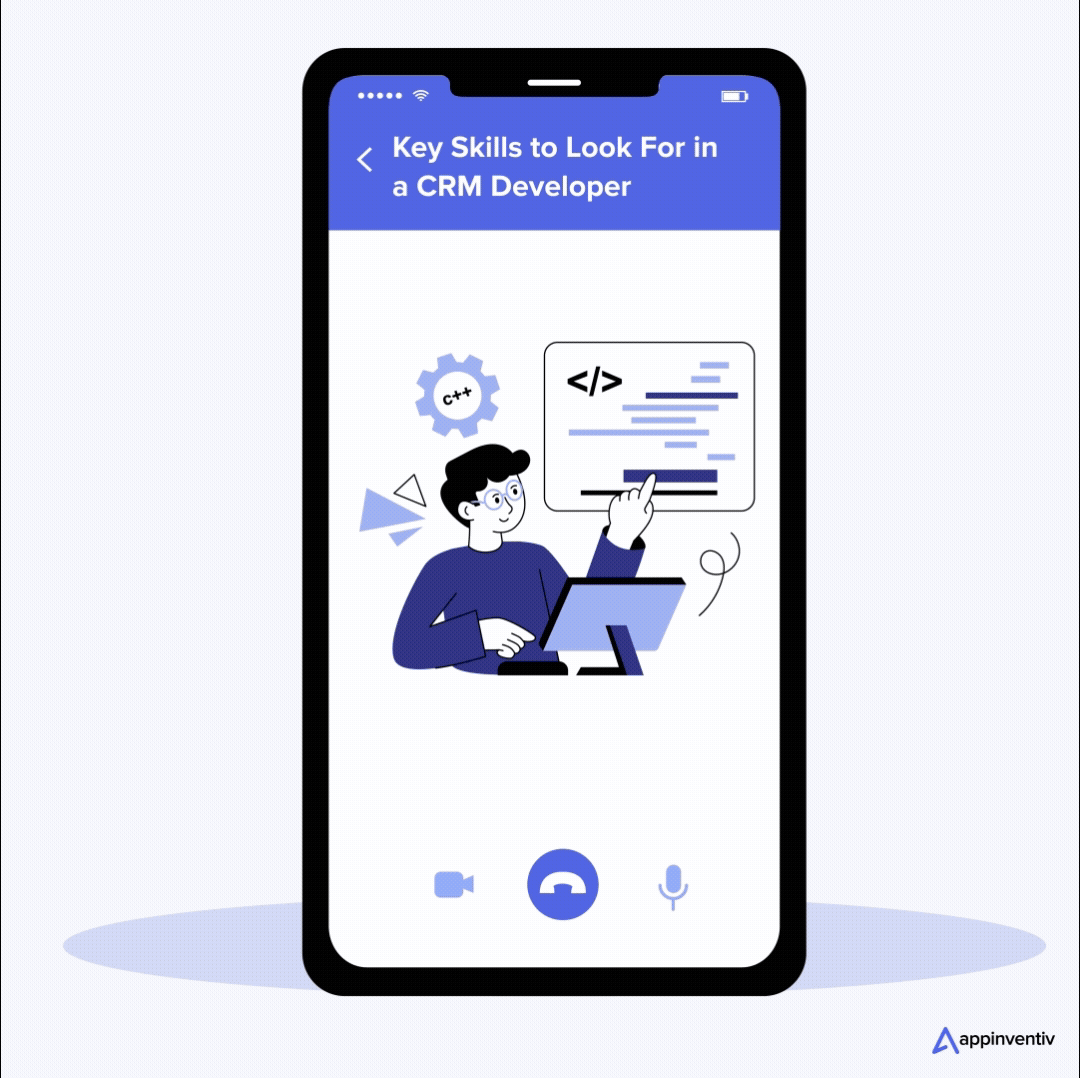
Also Read: Healthcare CRM Software Development: A Complete Guide
Conduct Interviews and Tests
Technical skills matter, but so does problem-solving, communication, and how they handle your specific business challenges. Ask a volley of questions to evaluate their hands-on expertise and efficiency in meeting your custom CRM software’s expectations.
Interview Questions for Hiring CRM Software Developers
- How skilled are you at developing, customizing, and integrating CRM systems?
- How do you address the challenges of data migration and management in CRM implementations?
- How can you ensure the security and privacy of customer data within a CRM system?
- How do you stay updated on recent CRM tools and technology changes?
- Can you integrate AI/ML capabilities into the CRM systems?
- How do you customize CRM software to suit the specific needs of a business?
- How do you integrate a CRM system with other ERP or marketing automation tools?
- How do you ensure user adoption after a new CRM system is implemented?
- How do you approach automating business processes within a CRM system?
- How do you handle CRM performance issues, particularly with large datasets?
- What is your approach to creating custom reports and dashboards in a CRM system?
Practical Tip: This is a general list of questions. You can modify this list based on your specific requirements and business challenges. Also, give them practical assessments: ask them to review your existing processes and suggest some improvements or let them design a simple feature. This reveals their real capability better than any interview question.
Finalize the Agreement
Once you have hired your dedicated CRM software developers, the next integral step is finalizing the agreement. This is the stage where you protect yourself and set clear expectations.
What must be in the agreement:
- Scope of work: Detailed deliverables (not vague descriptions)
- Timeline and milestones: When do you get what? Have specific dates.
- Payment structure: Hourly, fixed-price, or retainer? When do invoices get paid?
- Maintenance and support: Post-launch, who fixes bugs? For how long?
- Confidentiality and IP: Who owns the code? What’s protected?
- Non-Disclosure Agreement (NDA): Critical for protecting your business data.
Caution: If your chosen tech partner hesitates to sign an NDA, take it as a red alert. You should not partner with such a vendor and move on to the next.
Onboard and Begin Development
Voila! You have successfully taken all the needed steps. Now, it is time to hire CRM software developers and introduce them to your workflow. Give them necessary access to business tools, resources, and project documentation.
Once the onboarding is complete, you can initiate the development process.
Current Trend: With 78% of organizations having implemented AI in at least one core function (Source: McKinsey), there’s a huge need that you hire AI developers who can efficiently integrate artificial intelligence into your CRM systems.
- Tech Company of the Year 2023, awarded by Times Business
- India’s Growth Champions in IT 2023, awarded by the Economic Times
- Consecutive Tech Fast 50 Awards in 2023 & 2024 by Deloitte
- Leader in AI Product Engineering & Digital Transformation by the Economic Times
How Much Does It Cost to Hire CRM Software Developers
On average, the cost to hire top CRM developers ranges between $30,000 and $300,000 per project. But it is just a rough estimate. But there is no universal figure to quote the exact cost of hiring CRM software developers. It all depends on several critical components, particularly the 4 major ones:
- Developers’ experience level
- Geographical locations
- Project complexity
- Engagement models
Here are the factors to consider while hiring CRM software developers:
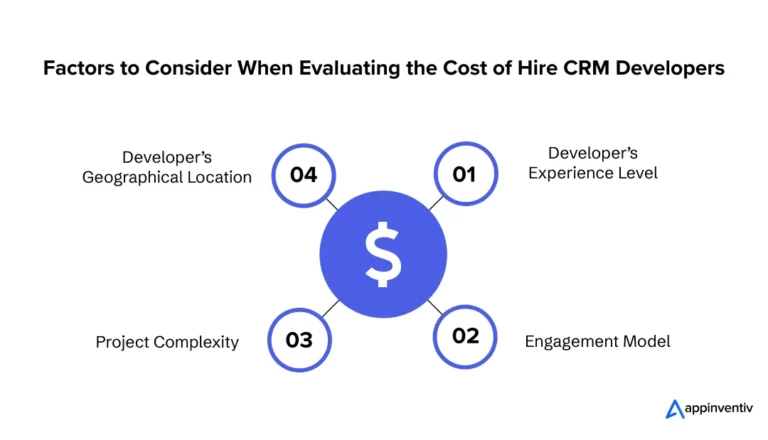
Developer’s Experience Level
The first and foremost factor that impacts the cost of hiring CRM software developers is their experience and expertise. For example, junior developers or new entrants in the market often charge less but may require more supervision. On the other hand, senior developers bring more expertise and can deliver faster results, albeit at a higher cost.
The table below depicts the average hourly rate of CRM software developers based on their expertise and experience level:
| Expertise Level | Hourly Rates | Project Costs |
|---|---|---|
| Junior CRM developers | $20 – $40/hr | $30,000 – $50,000 |
| Mid-level CRM software developers | $40 – $100/hr | $50,000 – $100,000 |
| Senior-level CRM developers | $100 – $200+/hr | $100,000 – $300,000 |
Developer’s Geographical Location
The developer’s location is one of the critical factors that impact the cost of hiring CRM software developers. The fees of developers vary significantly across the global map. Here is a table highlighting the average hourly rates for CRM software developers in different regions:
| Region | Price Range of Junior Developers | Price Range of Mid-level Developers | Price Range of Experienced Developers |
|---|---|---|---|
| US | $80 – $90 | $90– $100 | $100 – $150+ |
| UK | $65 – $80 | $80 – $90 | $90 – $120+ |
| Canada | $40 – $65 | $65 – $80 | $80 – $100+ |
| Australia | $40 – $60 | $60 – $80 | $80 – $100+ |
| India | $30 – $40 | $40 – $60 | $60 – $80+ |
| Germany | $25-$30 | $30 – $50 | $50 – $75+ |
| Ukraine | $24 – $25 | $25 – $35 | $35- 60$+ |
Project Complexity
Your project’s complexity is a massive cost driver. For instance, whether your CRM project requires custom integrations, intelligent AI analytics, or multi-platform support, all these elements directly increase or decrease the overall timeline and cost to hire CRM software developers for your business.
Here is a table highlighting CRM developers’ average development timeline and hourly rates based on the project’s complexity level.
| Complexity Level | Average Timeline | Approximate Cost |
|---|---|---|
| Basic CRM Software | 4-6 months | $30 – $80/hour |
| Advanced CRM Software | 4-9 months | $50 – $120/hour |
| Highly Complex CRM Software | 9 months to 1 year or more | $80 – $150/hour |
Engagement Models
The type of engagement model you choose (hourly, fixed price, or retainer) impacts the overall cost to hire CRM software developers. Hourly models? They are more flexible but can lead to unpredictable costs. Fixed-price models? These are ideal for well-defined projects with a set budget.
Below is a detailed breakdown of the costs to hire offshore CRM developers based on different engagement models, along with their respective pros and cons:
| Engagement Model | Cost Structure | Pros | Cons |
|---|---|---|---|
| Hourly | $30 – $150/hour | Flexible, pay for actual hours worked | Can lead to higher costs for longer projects |
| Fixed Price | $20,000 – $150,000 | Fixed budget, clear deliverables | Less flexibility |
| Retainer | $3,000 – $10,000/month | Ongoing support, steady collaboration | Higher ongoing costs |
Challenges in Hiring CRM Software Developers and How to Overcome Them
Of course, there are multiple advantages of hiring CRM software developers. But perks come with perils. Hiring offshore CRM developers also involves various challenges. Addressing these obstacles can ensure a smooth recruitment and development process. This eventually results in successful project outcomes.
Finding Developers Who Really Understand Your Industry
The Problem: A developer who’s great at generic CRM might struggle with healthcare compliance requirements or real estate workflows. This industry specific inefficiencies can lead to delays, errors, or subpar results.
Solution: Look for developers with specific industry experience. Ask for case studies in your vertical. If they’ve built CRMs for financial services, they understand regulatory requirements. If they’ve worked in eCommerce, they can best tackle inventory integration issues.
Ensuring Effective Communication
The Problem: When you hire skilled CRM developers, maintaining clear communication can be a real challenge. Time zone differences, language barriers, and varying work styles can create misunderstandings and slow progress.
Solution: Be sure about their communication requirements: channels, mode and time from the very starting. Establish overlap hours where both teams are online for real-time sync and set expectations for regular updates.
Balancing Cost and Quality
The Problem: Balancing cost and quality is often a key concern when hiring any tech expert and a CRM developer is no exception. While it may be tempting to choose lower-cost options, this can sometimes result in subpar work or delays, leading to higher costs in the long run.
Solution: Check references thoroughly. Ask previous clients about actual delivery, code quality, and responsiveness. Use fixed-price contracts for defined projects to prevent unexpected cost overruns.
Red Flags: When to Walk Away From a Developer
- They don’t ask detailed questions about your business needs.
- They’re vague about their process or can’t explain their approach
- They have a massive backlog but claim they can start immediately.
- They refuse to sign an NDA or talk about IP ownership
- Their portfolio has no examples similar to your project
- They can’t provide references, or references are vague
- They quote a price immediately without understanding scope
- They communicate poorly or rarely respond to messages
- They have no security certifications like ISO or compliance experience.
After You Hire: What Success Looks Like
Hiring a developer is just the first milestone; what truly determines success is what happens next. Here’s a quick breakdown of what effective onboarding and collaboration should look like after you hire remote CRM developers. Here’s how to ensure you get real value:
| Phase | What Success Looks Like |
|---|---|
| First 2 Weeks | • Daily or every-other-day check-ins to catch misalignments early • Clear deliverables documented and agreed upon • Developer should be asking lots of questions |
| Month 1 | • First working prototype or completed feature • Code reviews establish quality standards • Feedback loop working smoothly |
| Months 2–6 | • Regular progress against milestones • Client satisfaction with quality and communication • Adaptive: requirements changing based on learnings? Developer should adjust |
| Post-Launch | • Clear support and maintenance plan • Documentation is thorough • Knowledge transfer happens (you’re not locked in) |
Hire Top CRM Software Developers from Appinventiv
Tired of generic CRM systems holding your business back? Looking for the best CRM software developers to build secure and scalable solutions? Don’t have time to execute the meticulous process of finding and outsourcing a reputed custom software developers agency?
You don’t have to. Hire CRM software developers from Appinventiv.
Our dedicated development team of 1600+ tech experts offers secure, scalable, and state-of-the-art solutions using advanced technologies and an agile approach for quick deployment. We provide end-to-end CRM development services, covering everything from creativity and strategy to deployment and long-term maintenance support.
Our excellence is recognized globally:
- 10+ years of experience in 35+ industries
- 3000+ secure and scalable solutions delivered
- Featured in Deloitte’s Fast 50 India (2023 & 2024) for exponential growth
- ISO-27001, ISO-9001, and CMMI Level 3 certified
- Ranked among APAC’s High-Growth Companies by Statista & Financial Times
- 95% client satisfaction rate and 90% repeat clientele across 74+ countries
- 100 M+ app downloads achieved for our clients
- 6+ international offices and 5+ federal partnerships
So, what are you still thinking of? Partner with us to build a CRM system that aligns seamlessly with your business needs and drives growth, empowering you to enhance customer engagement and operational efficiency.
FAQs
Q. How do I protect myself legally when hiring offshore developers?
A: To save yourself legally, you must always have:
- Signed contract with clear scope, timeline, deliverables
- NDA protecting your business data and IP
- IP assignment clause (you must own the code)
- Regular communication documentation
- Milestone payments (don’t pay everything upfront)
- Service level agreements or maintenance terms.
Q. How do I evaluate a CRM development company before signing?
A. Before signing any contract, request a detailed proposal that outlines timelines, deliverables, and ownership rights. Ask how they handle feedback, project updates, and post-launch support.
A reliable partner will offer full visibility and proactive communication.
Here is the quick evaluation checklist:
- Review portfolio for similar industry projects
- Ask about data migration, performance, security, API integration, and change management
- Check process maturity (Agile, code review, QA team, DevOps)
- Test communication speed and quality
- Verify 10+ years in business, team redundancy, and dispute resolution
- Call 3 independent client references
- Request security certifications (ISO 27001, CMMI level 3, SOC 2)
Q. What’s the difference between in-house and outsourced CRM teams?
A. Here are the key differences between an in-house and an outsourced team:
An in-house team gives you more control but you typically need to spend more on your house team in terms of recruitment, training, and infrastructure costs.
An outsourced team allows you to get access to a pool of global talent without incurring the extra costs.
Q. How do I protect my data when outsourcing CRM development?
A. Essential data protection principles include:
- NDA – Signed confidentiality agreement
- DPA – Data Processing Agreement (for personal data)
- SLA – Security, uptime, backup requirements
- Separate environments – No real customer data in development
- Encryption – Both in transit (HTTPS) and at rest (AES-256)
- Access controls – VPN, MFA, role-based permissions, audit logging
- Vendor certifications – ISO 27001, SOC 2, GDPR compliance
- IP ownership – You own 100% of code and data
- Backup/recovery plan – Daily encrypted backups, 4-hour recovery
- Code documentation – Avoid vendor lock-in
If vendor refuses any of these: Walk away.
Q. Should we hire CRM developers or buy an off-the-shelf CRM?
A. If you need something quick and basic, an off-the-shelf CRM can be a good choice. But if you want your CRM to grow with your business, opting for custom-built is almost always the smarter option.
Custom CRMs let you define features, control data, and adapt workflows as your business evolves. That’s why many companies turn to Appinventiv. Our CRM software developers build scalable CRM platforms designed specifically around each client’s processes and goals.
Q. What are the benefits of hiring dedicated CRM software developers?
A. Here are the key benefits of hiring dedicated CRM software developers:
- The CRM developers you hire build custom platforms that perfectly match your workflows, customer processes, and business goals.
- You get access to global talent pool skilled in CRM platform development, AI analytics, and compliance frameworks like GDPR or HIPAA.
- With a focused team working exclusively on your project, development and deployment move quickly.
- You receive continuous maintenance, bug fixes and other essential services post-launch.


- In just 2 mins you will get a response
- Your idea is 100% protected by our Non Disclosure Agreement.
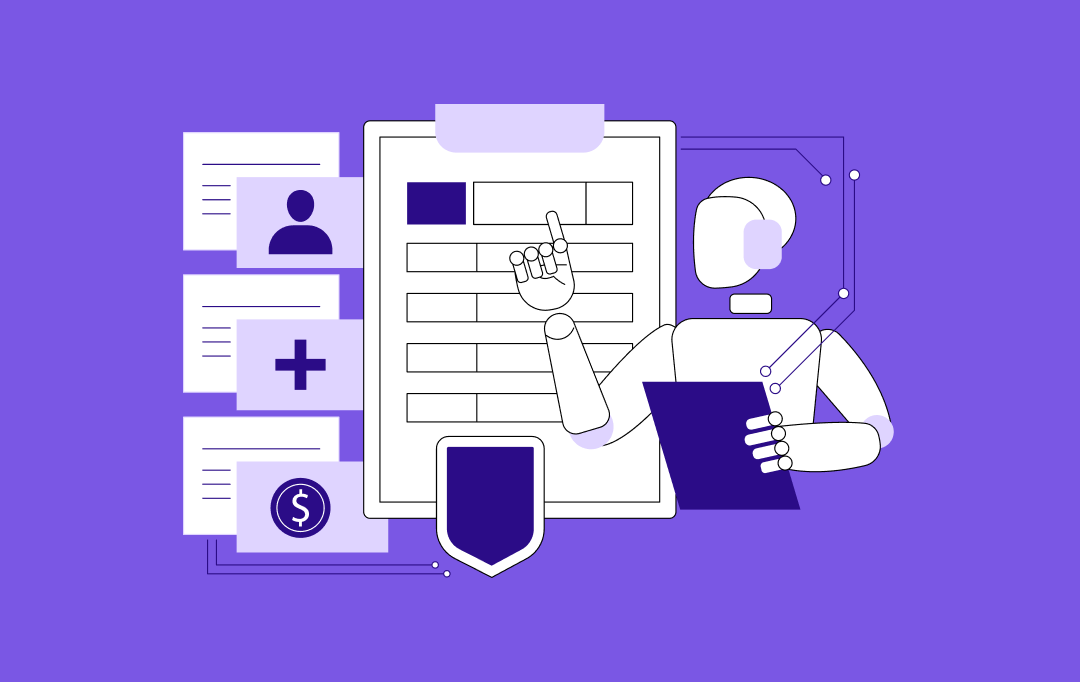
The ROI of Strategic Insurance Technology Consulting for Legacy Modernization
Key takeaways: Insurance technology consulting delivers ROI only when modernization is tied to real workflows, not system replacement. Most legacy modernization failures stem from weak ROI definition and tracking, not from technology limitations. The strongest returns come from reduced operational friction, faster change cycles, and tighter claims and underwriting control. Delaying modernization incurs hidden costs…
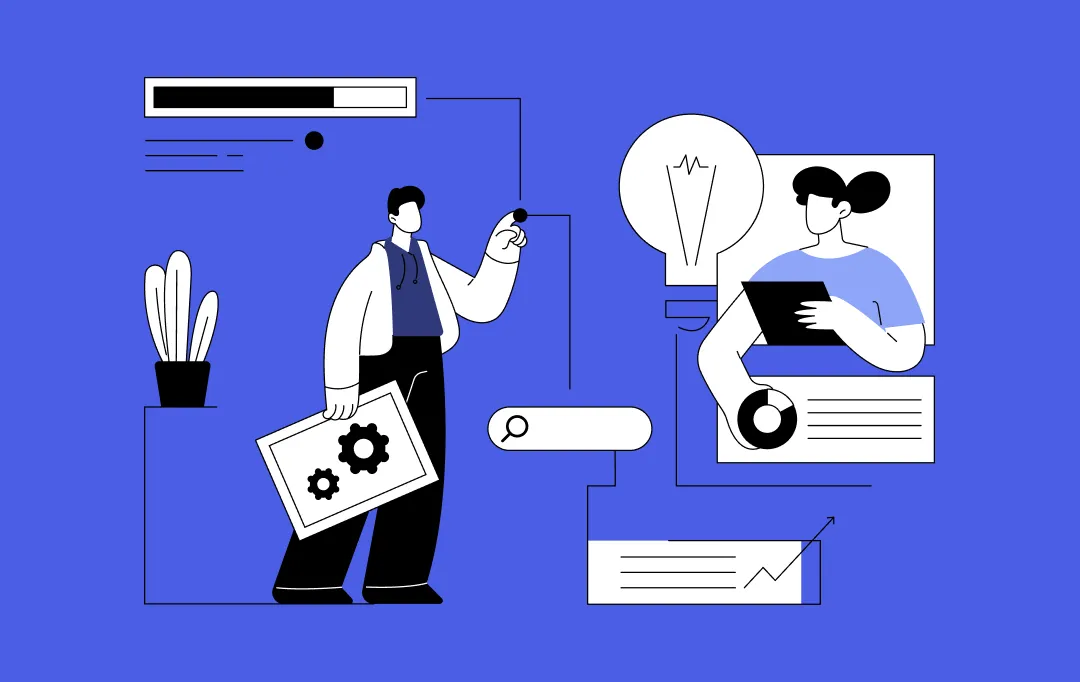
Key Takeaways Use a scorecard-driven RFP and a technical assessment to compare vendors on capability, compliance, and delivery risk. Local partners provide regulatory and cultural alignment; hybrid teams often pair that with offshore cost efficiency. Start with a scoped pilot or MVP, milestone-based contracts, and clear IP/SLAs to reduce procurement risk. Require demonstrable security controls,…
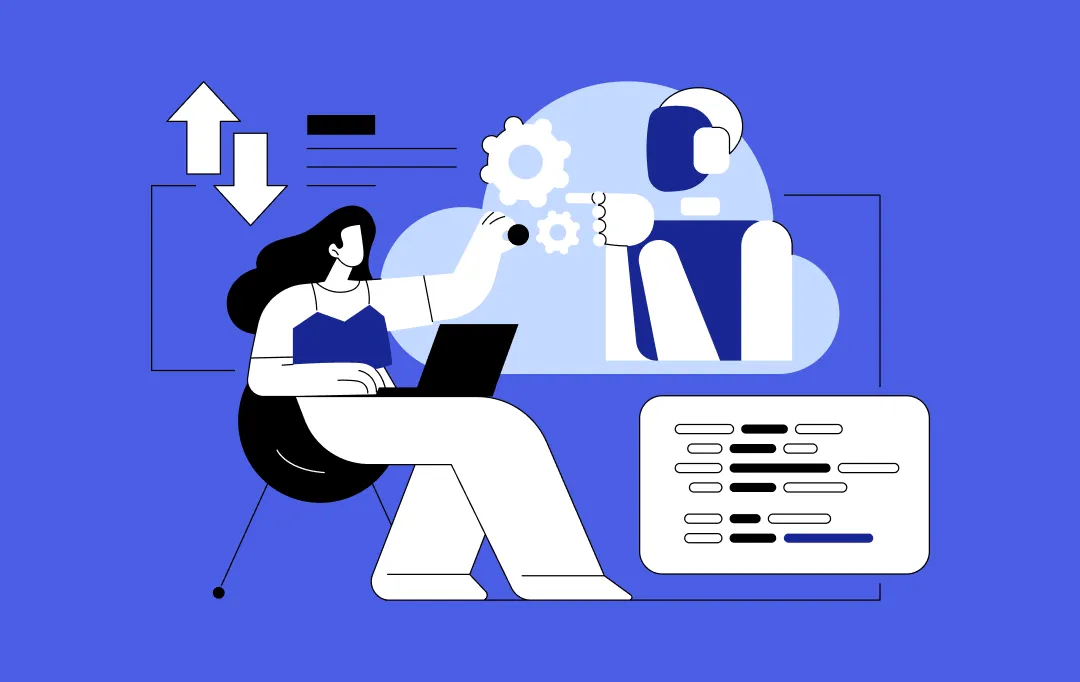
A Strategic Framework for Proof of Concept Software Development
Key takeaways: Most enterprise PoCs fail due to a lack of decision clarity, not technical feasibility or innovation potential. A disciplined PoC framework reduces delivery risk before budgets, teams, and timelines are committed. Enterprise-grade PoCs validate feasibility, compliance, and scale assumptions under realistic operating constraints. Clear success metrics and governance turn PoCs into reliable inputs…























